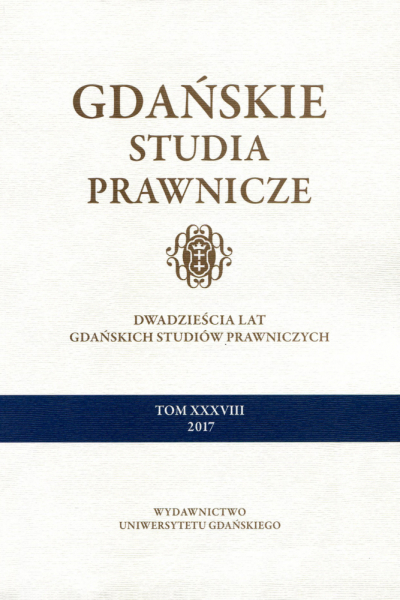Kilka uwag o wolności zgromadzeń na tle najnowszych zmian ustawy – Prawo o zgromadzeniach
Few Remarks on the Freedom of Assembly on the Background of the Latest Amendments to the Law on Assemblies
Author(s): Agnieszka GajdaSubject(s): Constitutional Law, Civil Law, Sociology of Law
Published by: Wydawnictwo Uniwersytetu Gdańskiego
Summary/Abstract: The Author of the article states that the freedom of assembly should serve, in addition to other purposes, the realization of the function of strengthening social bonds and the sense of community. She believes that the shared celebration of national holidays or anniversaries commemorating events from the past important for the Poles is a significant reason for participating in public assemblies and expresses people’s concern of the common good. It is equivalent to taking public actions in current affairs important for the functioning of the state and the society. Therefore, the separation of the assemblies, which should enjoy special protection, can be justified by the need to strengthen the cultural identity and social solidarity that are of particular importance in today’s troubled times.This distinction in terms of legal status is not contradictory to the principle of a democratic state ruled by law, unless it violates the substance of the constitutional freedom of assemblies. According to the Author, it did not occur at the stage of making law, however, it may happen at the stage of its application. The Author also points out that a new typeof a public assembly, distinguished by the legislator, should be provided with particular protection of the state in order to ensure its safety due to the large number of participants, including children. The Author considers the conditions of the admissibility of counter manifestations against such assemblies in the context of the latest amendments to the Law on Assemblies, which have led to the creation of a new category of public assemblies inPoland - cyclical assemblies. The above amendments have been criticized by the opposition.Before signing the law, the President of the Republic of Poland applied to the ConstitutionalTribunal, in the mode of preliminary constitutional review, for the examination of its compatibility with the Polish Constitution. The Author has taken into account only the thesis of the Constitutional Tribunal’s judgment, as its reasoning was not drawn up until the date of submitting the article for publication.
Journal: Gdańskie Studia Prawnicze
- Issue Year: 2017
- Issue No: XXXVIII
- Page Range: 181-196
- Page Count: 16
- Language: Polish

